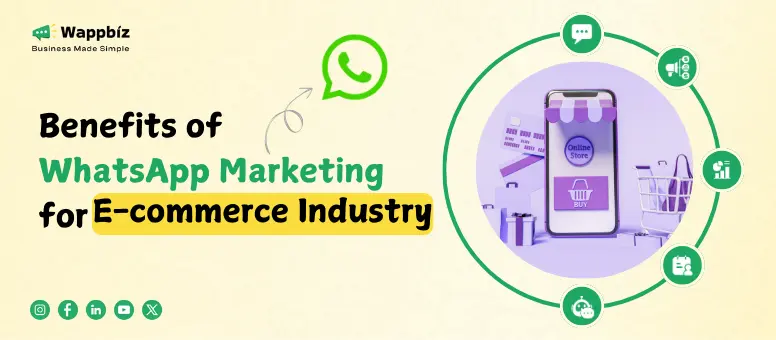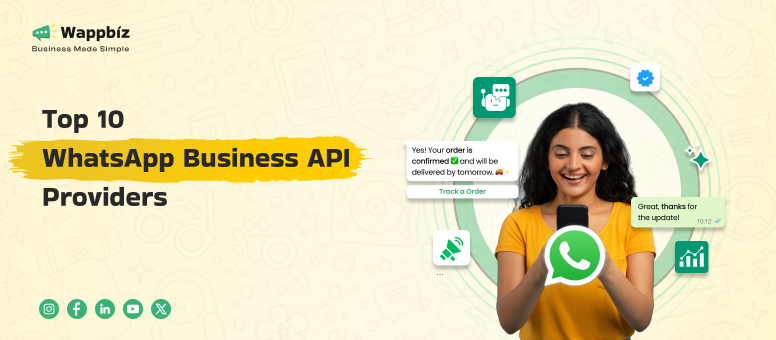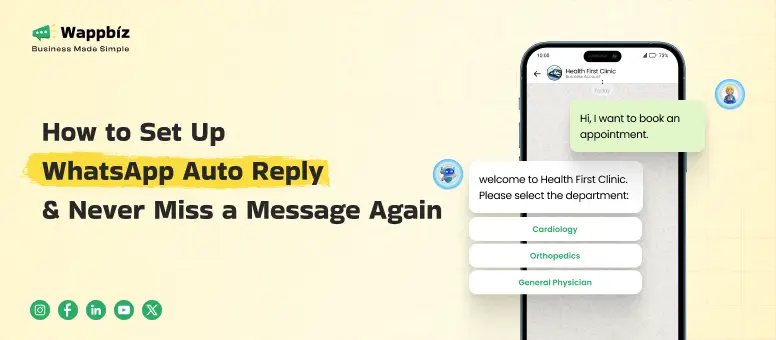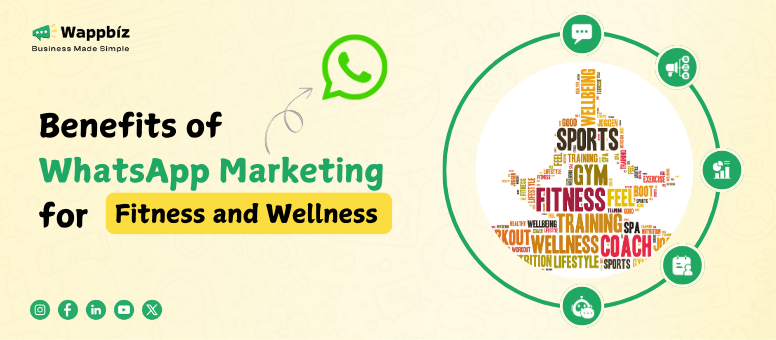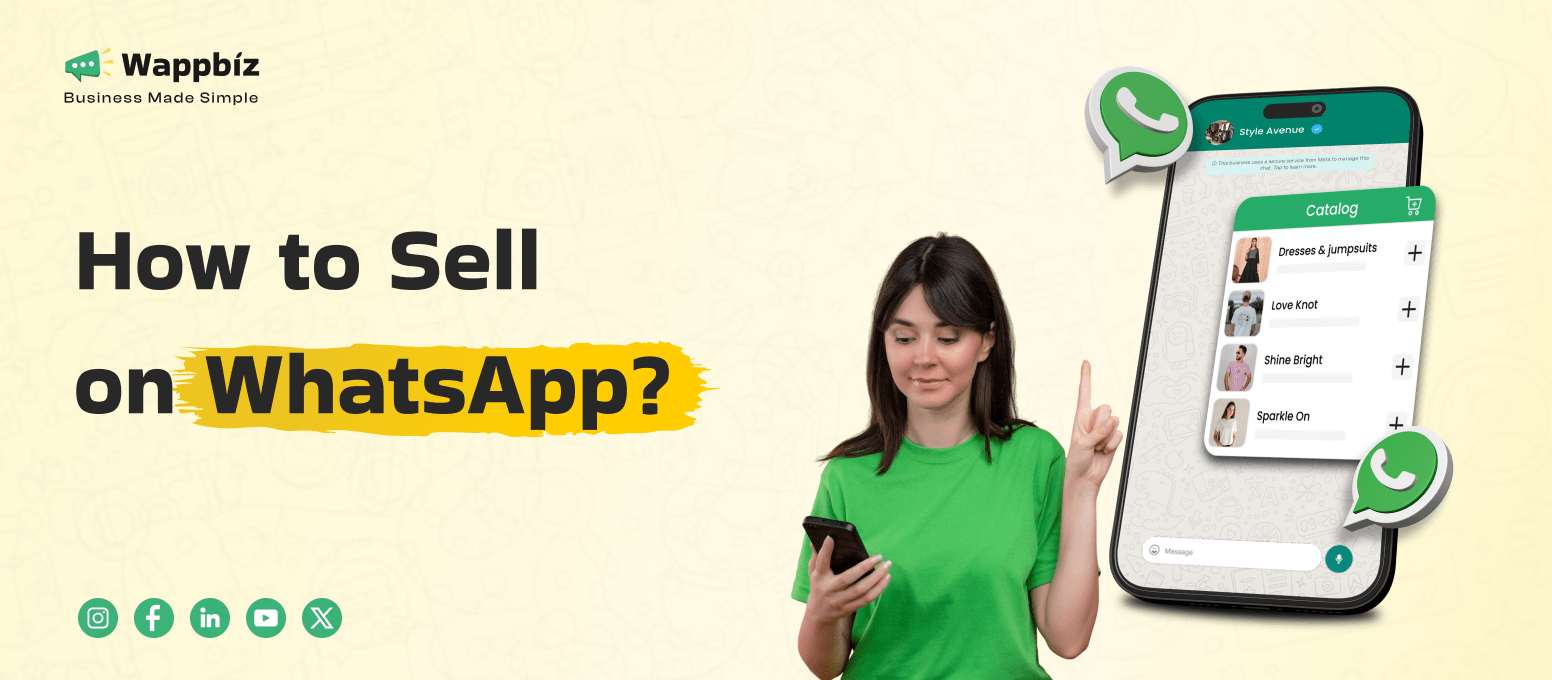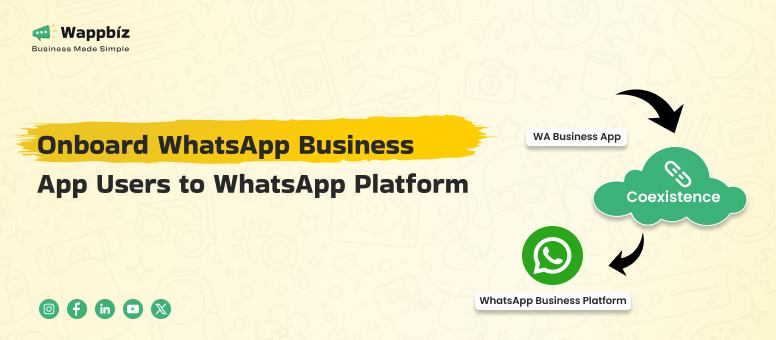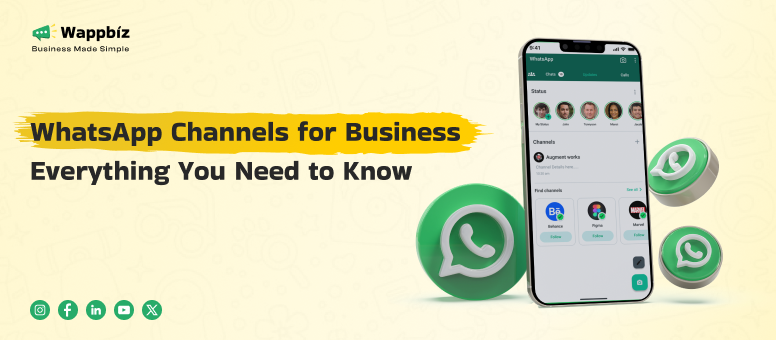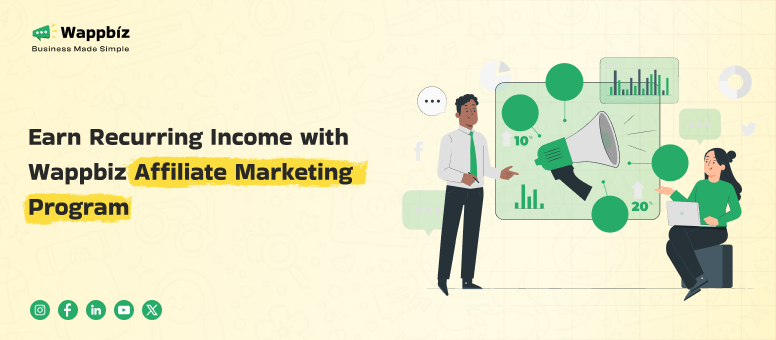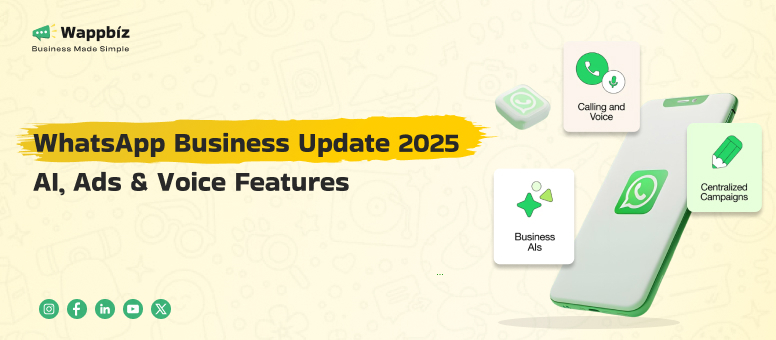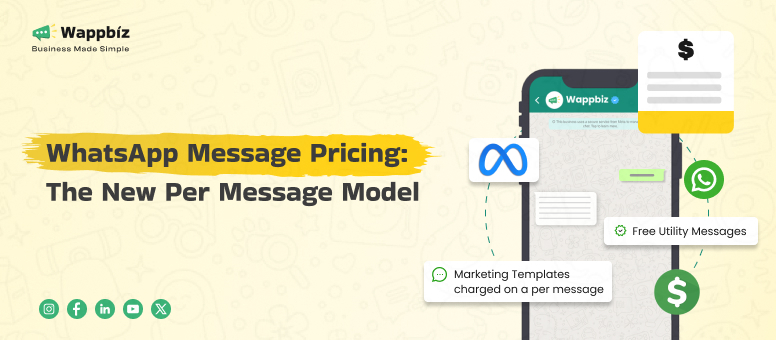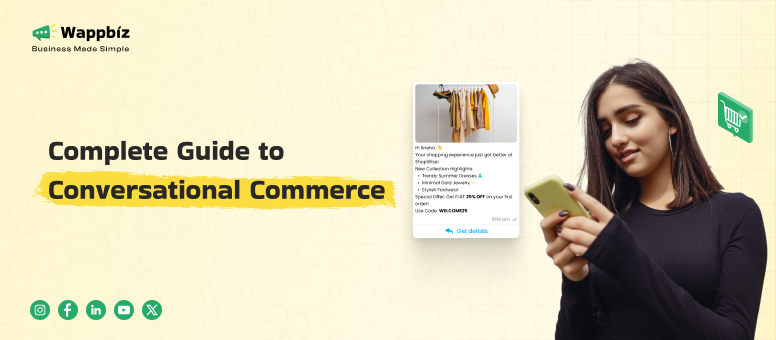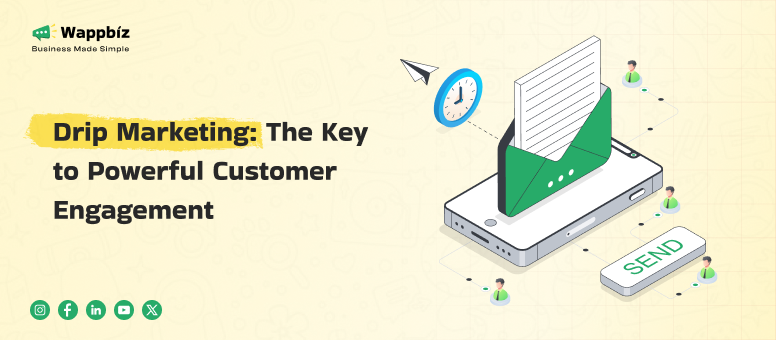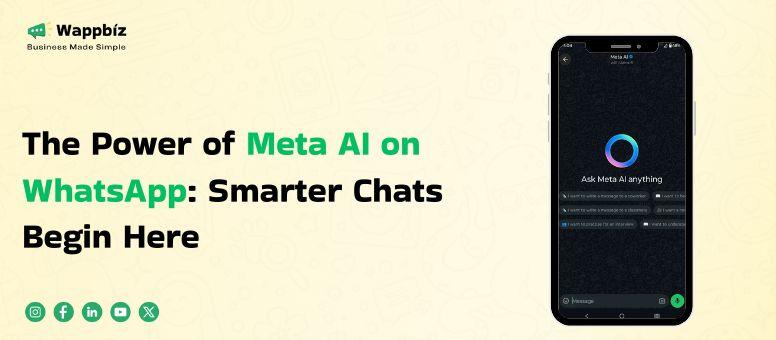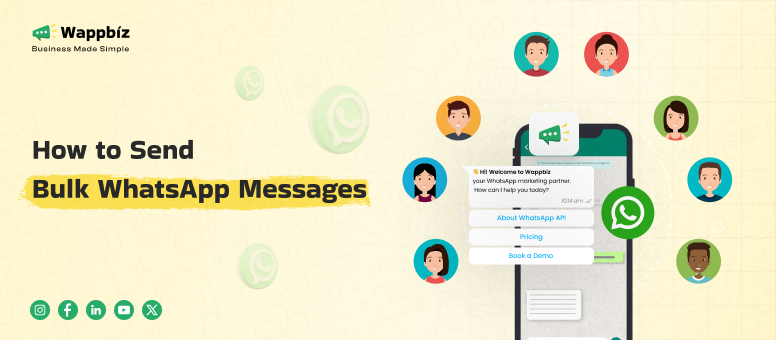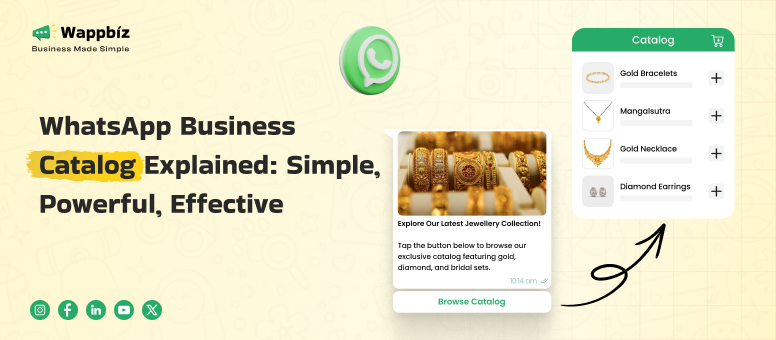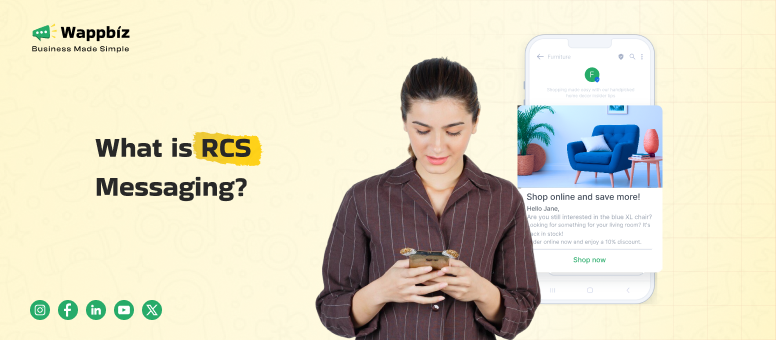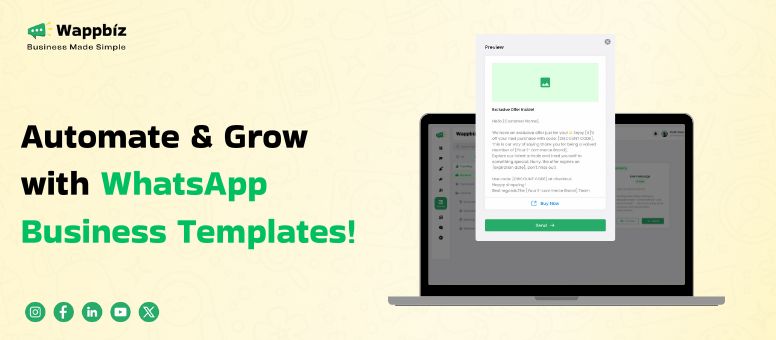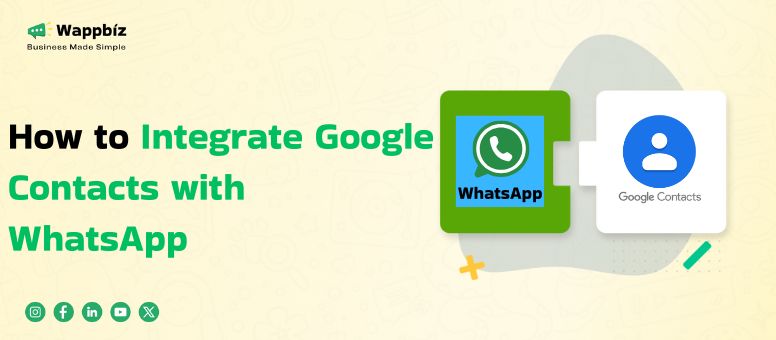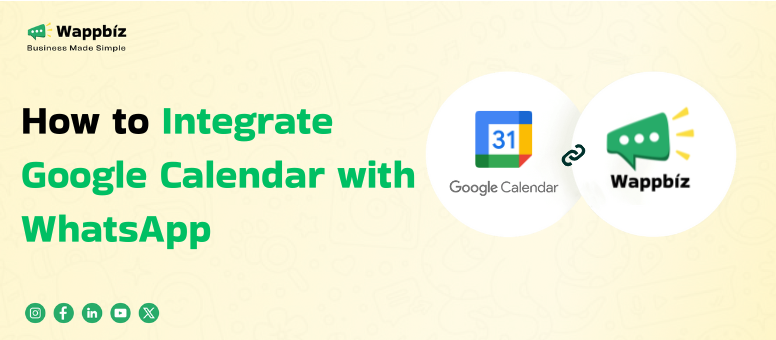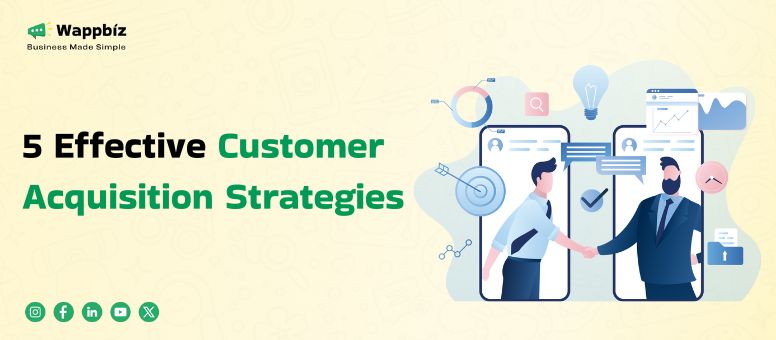Have you left a shopping cart behind because the checkout appeared too complicated or the updates were not timely enough? In e-commerce, it is very common to lose customers at the most important moments. This is where WhatsApp marketing enters the future of communication, offering us a seamless solution to communication problems. Wappbiz is a platform that enables e-commerce businesses to send instant updates, answer customer queries instantly, and offer personalized recommendations right within WhatsApp. Such connected shopping experiences will drastically cut cart abandonment and drive sales. Are you prepared to discover how this can benefit your company? Let’s dive into the details.
Why the E-commerce Industry Needs Effective Marketing Solutions
The e-commerce industry is a highly competitive space that requires instant customer engagement and rapid service delivery. Customers want immediate solutions and tailor-made interactions, which proves to be a challenge for traditional marketing. WhatsApp Marketing for E-Commerce is an incredibly powerful system that gives businesses the ability to engage customers in real time, automate order confirmation messages, and create tailored shopping journeys for them. E-commerce sites can increase customer satisfaction, reduce time and resource wastage, and improve operations and sales with the WhatsApp Business API & WhatsApp Chatbots.
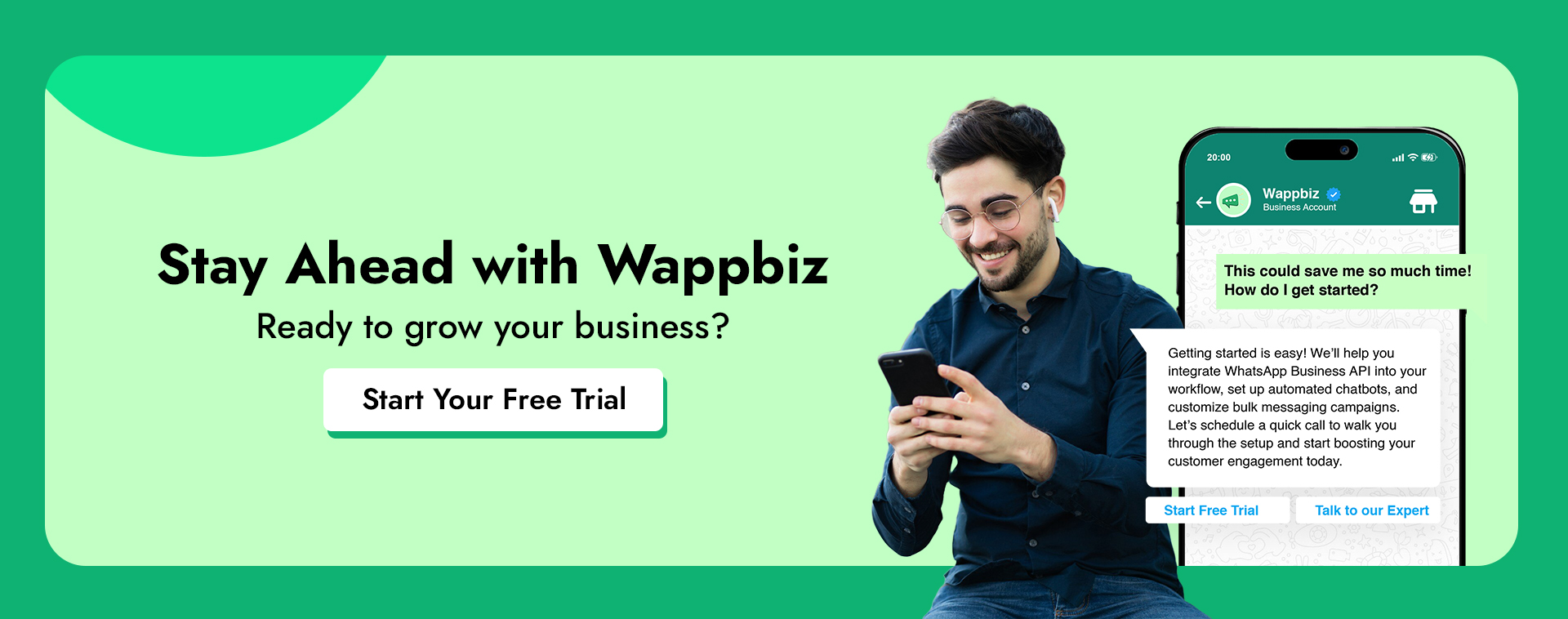
Top 20 Benefits of WhatsApp Marketing for the E-Commerce Industry
1. Instant Order Confirmations
Using the WhatsApp API, e-commerce platforms can instantly deliver order confirmations to customers, making it possible for them to receive necessary details as soon as they purchase.
For example,
When a user buys something, then they will get all its details, like order number and estimated delivery date, over WhatsApp. Responding immediately puts customers at ease and fosters trust, which adds to their overall shopping experience.
2. Automated Shipping and Delivery Notifications
WhatsApp Automation makes it simple to send shipping and delivery updates directly to WhatsApp, keeping your customers informed at every stage of their order journey.
For example,
WhatsApp Automation notifies customers about the dispatch of their order, its transit status, and the delivery date. This real-time tracking keeps the customers engaged and in the loop, so they no longer need to ask about their order status, leading to increased satisfaction.
3. Customized recommendations for products
E-commerce businesses can send personalized product recommendations to customers through the WhatsApp Business API according to their browsing and purchase history.
For example,
After purchasing a pair of shoes, a customer may receive a recommendation for accessories or even messages about similar products. Adopting this targeted approach enhances the shopping experience, increases the likelihood of repeat purchases, and boosts sales numbers.
4. Abandoned Cart Reminders
WhatsApp marketing efficiently resolves cart abandonment, a major challenge in the e-commerce world. You can also automatically remind customers about items in their cart so they can go back and finish checking out, which means more money for your business.
For example,
If a customer leaves a dress in her cart, you can send her an automated reminder message with a coupon to encourage her to complete her purchase.
5. 24/7 customer support with chatbots
WhatsApp chatbots support 24/7, helping e-commerce brands to respond to your customer queries instantly.
For example,
If a customer wants to ask the return policy at 12 AM, then instead of making him wait for an hour or more, you can let them know instantly through your chatbot. With 24/7 availability, this guarantees that customers always have access to support, enhancing their experience and developing trust for the brand.
6. Automatic order cancellation and refunds
Handling WhatsApp Automation makes handling order cancellations and refunds easier than ever, providing your customers with a quick and convenient solution.
For example,
When someone asks for a refund, they receive an automated reply with details on how the process will go and what timeframe to expect. The bot automates this process, decreases response times, and increases customer satisfaction, all while making the brand look efficient.
7. Special Promotions and Savings
Marketing on WhatsApp is an excellent way to share special offers and discounts with existing customers. E-commerce businesses can send targeted messages with special deals and motivate users to make a purchase again.
For example,
Offering a loyal skincare customer an exclusive 20% discount on new arrivals can motivate them to make another purchase. This ensures a more personal solution, which increases sales and repeat loyal customers.
8. Product Launch Announcements
E-commerce businesses should update customers on the new product launches from time to time, and delivering a message via WhatsApp Business API is the easiest way to do so.
For example,
A brand launching a new collection can push out announcements to customers directly, along with photos and links to purchase. Regular communication ensures that customers stay in the loop and are excited to make those early purchases.
9. Loyalty Program Updates
Businesses can use WhatsApp marketing to inform customers about their loyalty points and rewards, encouraging them to continue engaging with brands.
For example,
When a customer earns points after making a purchase, they receive a WhatsApp message detailing their current balance in the loyalty program and providing guidance on where to redeem rewards. This live engagement inspires consumers to be loyal to your company, improving their brand experience and relationship.
10. Flash Sale Notifications in Real Time
Using the WhatsApp API, e-commerce platforms can immediately start notifying customers about flash sales, so the customers never miss a timely deal.
For example,
If a customer receives a message about a 2-hour sale on electronics, their purchasing behavior is likely to alter. Such an on-time communication raises the sense of urgency, thereby increasing the sale and customer engagement.
11. Confirmation of Order and Assistance
WhatsApp chatbots can also help with customer checkout; in case any payment-related issue occurs, they provide real-time assistance.
For example,
If a customer tries to pay but fails, the chatbot will respond with the following message: “ Need help with other payment methods?”. By doing so, they lower the chances of a shopping cart abandonment and smoothly guide the customer through their buying process.
12. Name-based birthdays and holiday wishes
Most e-commerce businesses that send personalized greetings are focusing on developing this feature for Facebook Messenger and WhatsApp Business API.
For example,
If it is a customer’s birthday, he will receive a message saying happy birthday and some discount. This simple yet meaningful act not only gives joy to the customers but also motivates them to shop, which leads to higher customer loyalty and involvement.
13. Product Availability Alerts Automation
Businesses need to notify customers when a product is out of stock, and with the help of WhatsApp Automation, one can send an alert when those out-of-stock items are back in stock.
For example,
Customers who subscribe to notifications for a gadget’s sold-out status receive immediate notifications when it becomes available. This kind of automation automates the sales process and helps customers stay engaged, knowing they won’t miss out on clothes that they really want.
14. Maximizing Return Request Management
WhatsApp marketing facilitates product returns by guiding customers through the process of returning or replacing products.
For example,
When a customer returns an item, they receive a WhatsApp message that details the return process and provides contact information in case they require assistance. Hence, this minimizes the customer’s effort and enhances their trust in the brand, leading to greater customer satisfaction through a seamless experience.
15. Live Order Tracking
WhatsApp API allows e-commerce platforms to provide live order tracking for improved customer experience.
For example,
The WhatsApp API enables customers to monitor every stage of the delivery process, providing them with real-time updates on the movement of their package from one delivery stage to another. Such transparency fosters trust in customers, allowing them to feel empowered and valued during the customer purchase journey!
16. Aimed at Upselling and Cross-selling
The WhatsApp Business API gives e-commerce businesses the opportunity to upsell or cross-sell products seamlessly.
For example,
If a customer purchases a smartphone, then they can get a WhatsApp message for complementary accessories such as cases or headphones. This focused way of marketing makes the sales shoot up by providing customers with high-value choices, which enhances their shopping experience.
17. Automated Feedback Collection
Since customer feedback is vital for building a better e-commerce service, the process becomes effortless with WhatsApp Automation. Customers get a message asking about the status of the product and service after making a purchase.
For example,
A business could send a survey to a laptop buyer along with feedback inquiries. This speedy feedback-gathering mechanism enables a business to fine-tune its offerings and provide excellent service.
18. Technical Support
With the WhatsApp chatbots feature, customers facing technical issues can get solutions in real time, which is very beneficial for customers as well as e-commerce businesses..
For example,
If a customer encounters a problem with electronic equipment they have purchased through the platform, the chatbot can assist them with basic troubleshooting. The idea of this immediate support increases customer experience, truly demonstrating the brand’s commitment to effective and constructive services.
19. Customized Post Order Confirmation
So through WhatsApp marketing, businesses can check back on order confirmations and individually message customers to say thank you for making a purchase.
For example,
A customer who buys clothes may get a thank-you email along with some styling ideas for the new purchase. Enhancing the customer experience fosters a stronger connection with the brand.
20. Automated Loyalty Rewards Reminders
E-commerce sites can automate WhatsApp messages reminding customers of their loyalty rewards, motivating them to redeem points and make another purchase.
For example,
When a customer has enough points to receive the appropriate discount, they get a message via WhatsApp inviting them to use it back in their next purchase. It not only keeps customers hooked but also inspires repeat business.
Conclusion
There is a fantastic way to automate these customer interactions, support your customers in real time, and make sales: WhatsApp marketing for e-commerce websites. With Wappbiz, companies can now not only communicate but also satisfy their customers’ needs, ensuring that customer communications serve as an operational strategy that yields optimal results. Such proactive measures not only increase sales but also strengthen customer loyalty.
Do you want to prevent customers from leaving their carts unattended? Find out how easily Wappbiz can automate and improve your e-commerce communication.

FAQ’s
What is the usefulness of WhatsApp marketing for the e-commerce industry?
With WhatsApp marketing, e-commerce stores can make direct contact with customers and keep them up to date on orders, as well as deliver frictionless WhatsApp shopping experiences.
Are e-commerce stores better at using WhatsApp marketing to increase their sales?
Absolutely! When it comes to e-commerce brands, they can leverage WhatsApp for exclusive discount delivery, product recommendations, and flash-sale alerts to boost the conversions.
How can customers track their order on WhatsApp and receive updates easily?
WhatsApp enables stores to share updates on the order, shipping information, and delivery notifications with customers, enhancing the shopping experience.
Does WhatsApp provide affordable marketing for e-commerce businesses?
Yes, WhatsApp serves as an affordable communication channel that enables e-commerce stores to market products, manage inquiries, and communicate with customers.
Will WhatsApp marketing assist in retrieving abandoned carts?
Definitely! WhatsApp can serve as a helpful tool for e-commerce brands by reminding customers of items they left unattended in their cart during online purchases and suggesting that they continue with the purchase if they are interested.
Is WhatsApp safe for e-commerce customer information?
Absolutely. End-to-end encryption protects all WhatsApp interactions and data, guaranteeing the privacy and security of customer interactions.
Does WhatsApp marketing enhance customer retention for online stores?
Indeed, personalized offers to loyal customers, loyalty rewards, and exclusive updates on WhatsApp aid in the development of brand relationships for e-commerce brands.
Does WhatsApp marketing aid in gathering feedback for e-commerce?
Online stores can ask customers to give feedback on their products and services via WhatsApp to help improve their offerings and customer satisfaction.
Is it beneficial to promote your new product launches and seasonal sales via WhatsApp?
Absolutely! E-commerce stores can use WhatsApp to directly share product launch information, seasonal discounts, and limited-time collection announcements with their audience.
How does your WhatsApp marketing aid in providing e-commerce customer support?
Through WhatsApp, customers can query anything, request information about the products, and apply instant support, enabling an enduring customer shopping journey.

